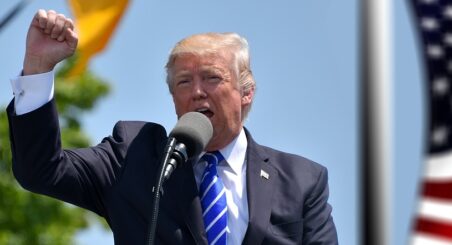The long-awaited Council vote on the prevention of online child abuse, widely known as the chat-control proposal, will take place on 6-7 December, instead of 14 October. The delay came after Germany formally joined the opposition, redirecting the political momentum.
The legislation in question, European Union’s CSAR (Child Sexual Abuse Regulation) is to require messaging platforms, such as WhatsApp and Signal, to scan private communications for CSAM (Child Sexual Abuse Material). However, Germany’s opposition has been as vocal as it was decisive, and has helped create a blocking minority that could derail the law.
After months of uncertainty, Jens Spahn, parliamentary leader of the CDU/CSU group in the Bundestag, confirmed the German position against “the unwarranted monitoring of chats”. Mr Spahn argued that such measures would be comparable to opening all letters “as a precautionary measure to see if there is anything illegal in them”. He added that such “is not acceptable, and we will not allow it”.
Digital rights advocates celebrated the move as a victory point in the debate. Former MEP Patrick Breyer, one of the most vocal critics of the proposal, described Germany’s stance as “a tremendous victory for freedom”. He credited “the tireless resistance from citizens, scientists, and organisations” for preventing what he called “a totalitarian mass surveillance law”.
You might be interested
Germany’s opposition alters the balance of power in the Council. To pass, the regulation needs support from member states representing at least 65 per cent of the EU’s population. Although most countries support the bill, Germany’s shift formed a blocking minority.
Currently, according to fightchatcontrol online tracking, six member states (Belgium, Greece, Italy, Latvia, Slovakia, and Sweden) remain undecided, while nine others (Germany, Austria, Belgium, Czechia, Finland, the Netherlands, Poland, and Luxembourg) are against. The rest of the bloc, 12 member states, still support the regulation.
Big Tech: A sigh of relief
Tech companies also welcomed the vote postponement and Germany’s opposition. Meredith Whittaker, president of Signal, greeted Germany’s stance in her X account: “We’re so relieved to see Germany reaffirm its opposition to the dangerous Chat Control proposal,” she wrote, somewhat predictably.
X itself concurred, using its Global Government Affairs page to state that the Council’s decision to postpone the vote “marks an important step in protecting secure communications”. “It is essential that member states continue to oppose any measures that enable mass surveillance and undermine our fundamental rights,” the platform stated.
Experts across science, technology, and media are opposing the chat-control proposal. During the last weeks, the sector’s representatives issued warnings about the consequences for privacy, security, and press freedom.
Privacy, press freedom concerns
A group of 587 researchers from 34 countries sent a joint letter to EU lawmakers, cautioning that the regulation poses a serious threat to digital security. They describe the law as “not feasible” as it fails to resolve fundamental technical and privacy flaws.
The tech industry echoed those concerns. More than 40 European tech firms and the European DIGITAL SME Alliance issued a joint statement warning of the proposal’s risks to safety and sovereignty. According to them, chat control “would not only make the internet less safe for everyone but also undermine one of the EU’s most important strategic goals: progressing towards higher levels of digital sovereignty”.
Press freedom and democratic accountability depend on the ability of journalists and citizens to communicate securely and without fear of surveillance. The proposed chat-control regulation would endanger this foundation. — European Centre for Press and Media Freedom
Press freedom organisations have also raised alarms. The European Centre for Press and Media Freedom (ECPMF) warned that the chat-control legislation could endanger the ability of journalists and citizens to communicate securely. For them, such regulation would erode the foundations of press freedom and democratic accountability. While acknowledging the moral imperative to protect children from abuse, the centre cautioned that once such surveillance systems are created, they can easily be turned into instruments for monitoring political speech or journalistic investigations.
Another round in December
The EU Council will hold the vote on December 6 and 7. Germany’s opposition brings new points to the discussion and a challenge to reach an agreement. For now, the delay represents a pause and not the end of the discussion on the ongoing struggle to balance child safety with digital privacy.
Berlin’s move could, of course, also serve an entirely different purpose. It may become a negotiating chip in the Council which the Germans may use for political horse-trading during talks on other priorities.











